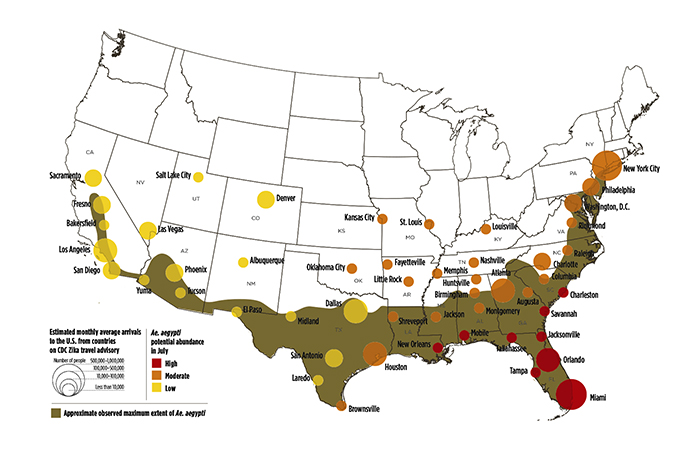NYC begins fight against the Zika virus
Aerial spraying began in Brooklyn last week

New York City faces a moderate risk (shown by the color of its circle) of establishing a mosquito population capable of transmitting the Zika virus by July, according to the National Center for Atmospheric Research (NCAR). In addition, Zika risk may be elevated in cities like New York, with more air travelers arriving from Latin America and the Caribbean (larger circles). Image based on data mapped by Olga Wilhelmi, National Center for Atmospheric Research (NCAR)
The city has begun spraying larvicide in a number of neighborhoods across the city in an effort to control mosquito-borne illnesses, including West Nile Virus and a potential new threat this year, the Zika virus.
Aerial spraying took place over the marshes and wetlands of Marine Park and Fresh Creek in Brooklyn last week. Parts of Staten Island, Queens and the Bronx were also sprayed.
West Nile symptoms include high fever, muscle pains and a headache that worsens. A small number of infected people (less than 1 percent) develop serious infections of the brain or spinal cord.
